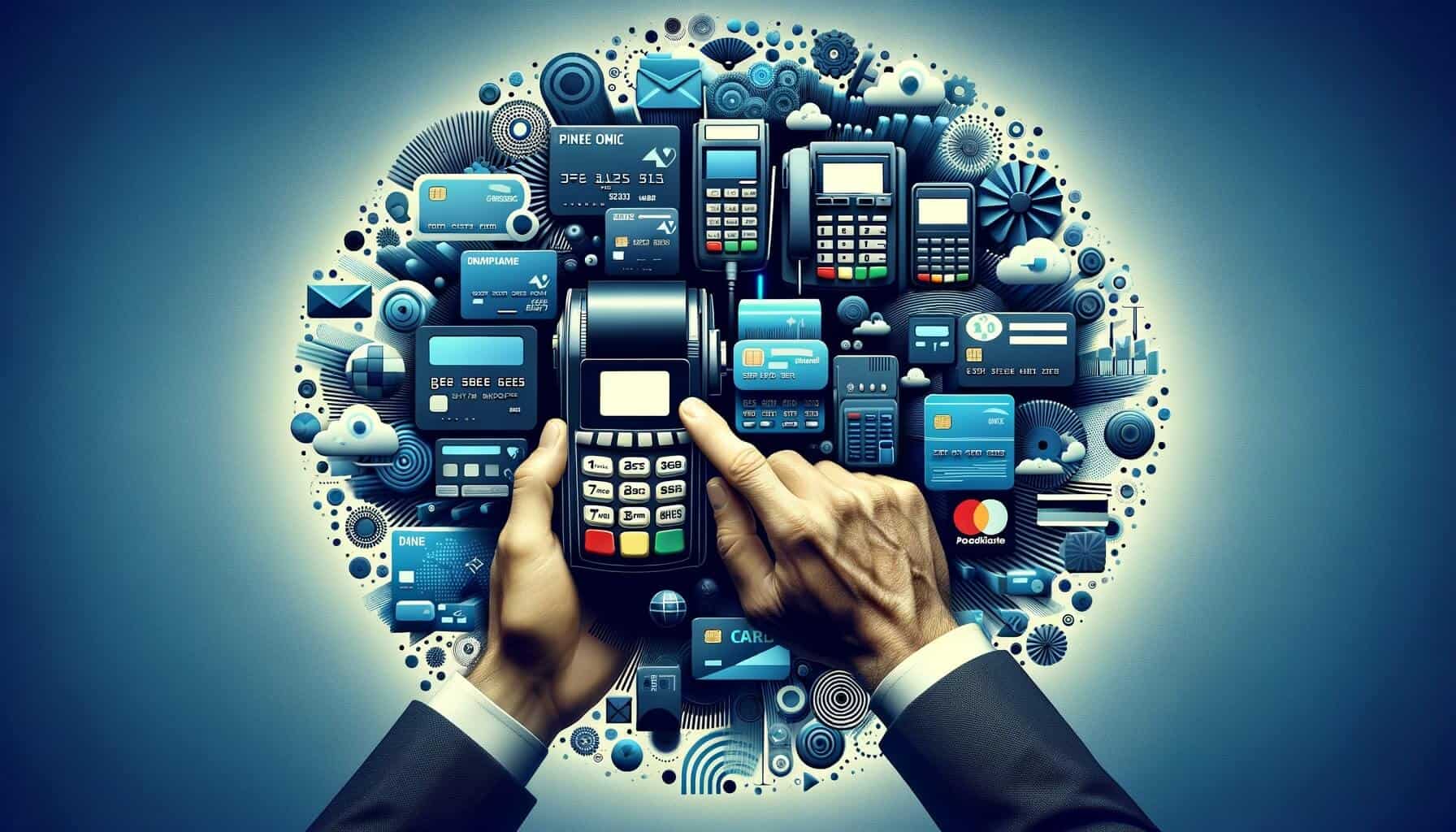
By Mollie Mills April 1, 2025
In today’s digital age, accepting credit card payments has become a necessity for businesses of all sizes. Whether you run a small retail store or a large e-commerce platform, having a reliable and efficient credit card machine is crucial for the success of your business. However, with so many options available in the market, selecting the best credit card machine can be a daunting task.
This comprehensive guide will walk you through the factors to consider, types of credit card machines, features and functionality, payment processing options, security measures, costs and fees, tips for choosing the best provider, and common FAQs about credit card machines.
Factors to Consider When Selecting a Credit Card Machine
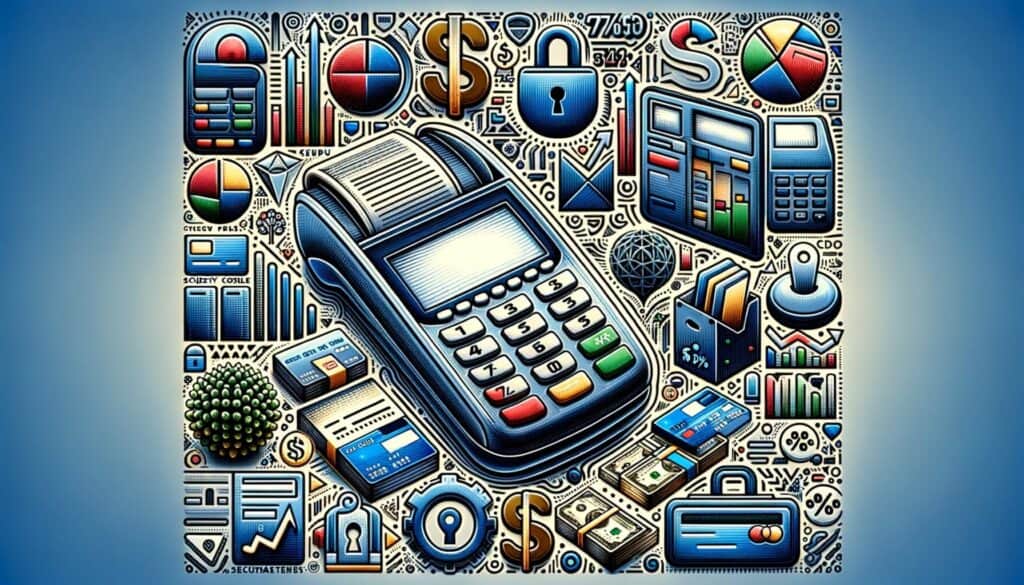
When choosing a credit card machine for your business, there are several factors that you need to consider. Firstly, you need to assess the type of business you have and the specific needs of your customers. For example, if you have a brick-and-mortar store, you may require a countertop credit card machine, whereas if you have a mobile business, a wireless or mobile credit card machine would be more suitable.
Secondly, you need to evaluate the connectivity options available. Some credit card machines rely on a landline connection, while others can connect via Wi-Fi or cellular networks. It is important to choose a machine that offers a reliable and secure connection, ensuring seamless transactions for your customers.
Another crucial factor to consider is the compatibility of the credit card machine with your existing point-of-sale (POS) system. If you already have a POS system in place, it is essential to choose a credit card machine that integrates seamlessly with it, allowing for efficient inventory management and reporting.
Additionally, you should consider the ease of use and user interface of the credit card machine. A user-friendly machine will not only save time but also reduce the chances of errors during transactions. It is also important to assess the durability and reliability of the machine, as you want a device that can withstand the demands of your business and provide uninterrupted service.
Types of Credit Card Machines: A Comprehensive Overview
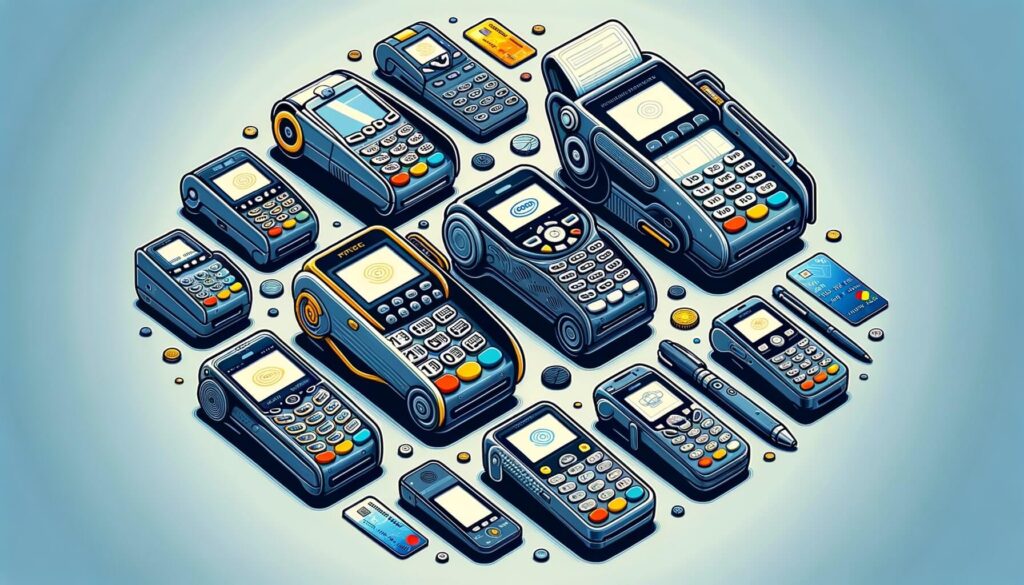
There are several types of credit card machines available in the market, each catering to different business needs. Let’s take a comprehensive look at the most common types:
1. Countertop Credit Card Machines: These machines are designed for businesses with a fixed location, such as retail stores or restaurants. They are connected to a landline or internet connection and are typically placed on the checkout counter for easy access.
2. Wireless Credit Card Machines: Ideal for businesses that require mobility, wireless credit card machines use Wi-Fi or Bluetooth technology to process transactions. They are commonly used by businesses that operate in multiple locations or attend trade shows and events.
3. Mobile Credit Card Machines: These devices are specifically designed for businesses on the go, such as food trucks or delivery services. They connect to a smartphone or tablet via a mobile app and allow for secure and convenient transactions anywhere.
4. Virtual Terminal: A virtual terminal is a software-based solution that allows businesses to process credit card payments through a computer or laptop. It is particularly useful for e-commerce businesses or those that receive payments over the phone.
Evaluating the Features and Functionality of Credit Card Machines
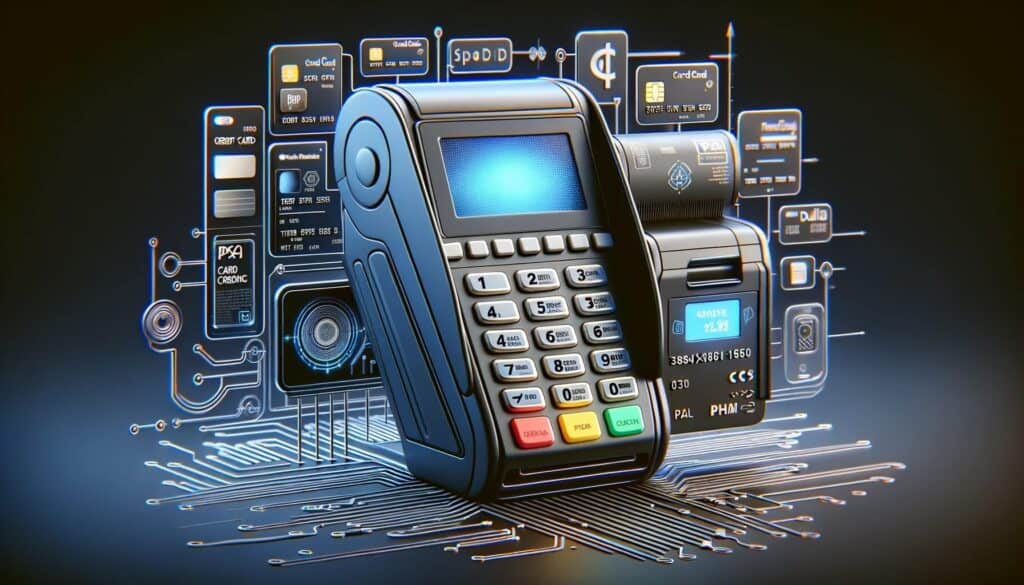
When selecting a credit card machine, it is important to evaluate the features and functionality it offers. Here are some key features to consider:
1. EMV Chip Card Reader: With the shift towards EMV chip cards, it is crucial to choose a credit card machine that supports chip card transactions. EMV technology provides an added layer of security, reducing the risk of fraudulent transactions.
2. Near Field Communication (NFC) Capability: NFC technology enables contactless payments, allowing customers to make payments by simply tapping their cards or mobile devices on the credit card machine. This feature is becoming increasingly popular, especially with the rise of mobile payment apps like Apple Pay and Google Pay.
3. Receipt Printing Options: Consider whether you need a credit card machine that can print paper receipts or if you prefer to send digital receipts via email or SMS. Some machines offer both options, providing flexibility for your business and customers.
4. Integration with POS System: If you already have a POS system in place, it is important to choose a credit card machine that seamlessly integrates with it. This integration allows for efficient inventory management, reporting, and reconciliation of transactions.
Comparing Different Payment Processing Options for Credit Card Machines
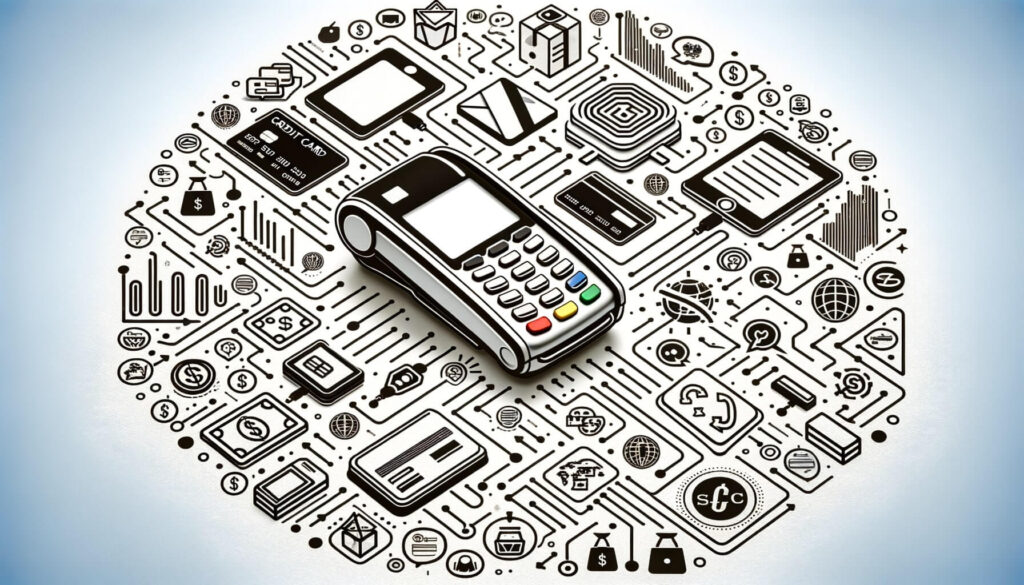
When selecting a credit card machine, it is essential to consider the payment processing options available. Here are the most common options:
1. Merchant Account Providers: Many businesses choose to work with a merchant account provider to handle their credit card processing. These providers offer a range of services, including credit card machines, payment gateways, and merchant accounts. They charge fees based on transaction volume and provide support for any issues that may arise.
2. Payment Service Providers: Payment service providers, such as PayPal or Stripe, offer an all-in-one solution for businesses to accept credit card payments. They provide payment gateways, credit card machines, and merchant accounts, making it easy for businesses to get started. These providers typically charge a percentage fee per transaction.
3. Bank Merchant Services: Banks also offer merchant services to businesses, allowing them to accept credit card payments. While this option may seem convenient, it is important to compare the fees and services offered by different banks to ensure you are getting the best deal.
Assessing the Security Measures of Credit Card Machines
Security is a top priority when it comes to credit card machines. As a business owner, you have a responsibility to protect your customers’ sensitive payment information. Here are some security measures to consider:
1. PCI Compliance: The Payment Card Industry Data Security Standard (PCI DSS) sets the security standards for businesses that handle credit card transactions. It is important to choose a credit card machine that is PCI compliant to ensure the highest level of security for your customers’ data.
2. Encryption: Look for credit card machines that offer end-to-end encryption, which ensures that the cardholder’s data is securely transmitted and stored. This encryption technology protects against data breaches and unauthorized access to sensitive information.
3. Tokenization: Tokenization is another security measure that replaces sensitive cardholder data with a unique identifier called a token. This token is used for transaction processing, reducing the risk of data theft in case of a breach.
Understanding the Costs and Fees Associated with Credit Card Machines
When selecting a credit card machine, it is important to understand the costs and fees associated with it. Here are some common fees to consider:
1. Equipment Costs: The upfront cost of the credit card machine can vary depending on the type and features you choose. Some providers offer leasing options, allowing you to spread out the cost over time.
2. Transaction Fees: Transaction fees are charged for each credit card transaction processed. These fees can be a flat rate or a percentage of the transaction amount. It is important to compare the transaction fees offered by different providers to ensure you are getting the best deal for your business.
3. Monthly Fees: Some providers charge a monthly fee for the use of their credit card machine and services. These fees can include maintenance, customer support, and software updates. It is important to consider these fees when evaluating the overall cost of the credit card machine.
Tips for Choosing the Best Credit Card Machine Provider
Choosing the right credit card machine provider is just as important as selecting the machine itself. Here are some tips to help you make the best decision:
1. Research and Compare Providers: Take the time to research and compare different credit card machine providers. Look for providers that have a good reputation, offer competitive pricing, and provide excellent customer support.
2. Read Reviews and Testimonials: Reading reviews and testimonials from other businesses can provide valuable insights into the quality of service and reliability of the provider. Look for reviews that specifically mention the credit card machine and the overall experience with the provider.
3. Consider Customer Support: Customer support is crucial when it comes to credit card machines. Choose a provider that offers 24/7 customer support and has a reputation for resolving issues quickly and efficiently.
4. Evaluate Contract Terms: Carefully review the contract terms and conditions before signing up with a credit card machine provider. Pay attention to any hidden fees, cancellation policies, and contract length. It is important to choose a provider that offers flexibility and transparency.
Common FAQs about Credit Card Machines Answered
Q1. What is a credit card machine?
Answer: A credit card machine, also known as a point-of-sale terminal, is a device that allows businesses to accept credit card payments from customers. It reads the information from the customer’s credit card and securely processes the transaction.
Q2. How do credit card machines work?
Answer: Credit card machines work by connecting to a payment processor or merchant account provider. When a customer makes a payment, the credit card machine reads the information from the card’s magnetic stripe or chip and securely transmits it to the payment processor for authorization. Once the transaction is approved, the machine prints a receipt for the customer.
Q3. Can I use my existing credit card machine with a new provider?
Answer: In some cases, it is possible to use your existing credit card machine with a new provider. However, compatibility may vary depending on the make and model of the machine and the provider’s system. It is best to check with the new provider to ensure compatibility before making any changes.
Q4. How long does it take to set up a credit card machine?
Answer: The time it takes to set up a credit card machine can vary depending on the provider and the type of machine. In some cases, it can be as quick as a few minutes, while in others, it may take a few days for the machine to be activated and ready for use.
Q5. What happens if my credit card machine breaks down?
Answer: If your credit card machine breaks down, it is important to have a backup plan in place. Contact your provider’s customer support immediately to report the issue and request a replacement or repair. In the meantime, you may need to use alternative payment methods, such as manual card imprinters or mobile payment apps.
Conclusion
Choosing the best credit card machine for your business is a decision that should not be taken lightly. By considering factors such as the type of business, connectivity options, compatibility with existing systems, features and functionality, payment processing options, security measures, costs and fees, and the reputation of the provider, you can make an informed decision that meets the specific needs of your business.
Remember to research and compare different options, read reviews and testimonials, and evaluate contract terms before making a final decision. By selecting the right credit card machine, you can provide a seamless payment experience for your customers and contribute to the growth and success of your business.